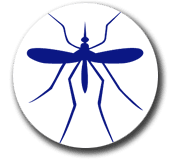Why Is Malaria Particularly Dangerous For Young Children?
Why Is Malaria Particularly Dangerous For Young Children?

As far as mosquito-borne diseases go, malaria seems to be the most common and deadly of them all. Malaria is especially dangerous to impoverished populations living in tropical conditions. Medical researchers have long known that malaria is particularly devastating for young children and infants. Young children, especially infants, are more vulnerable to all diseases, but malaria seems to be even more deadly to children than other diseases. For decades researchers have struggled to discover why this is. For many children that become infected with malaria, a more deadly form of the disease called cerebral malaria can develop. An American doctor working in Malawi, Dr. Terrie Taylor, is determined to discover why some children recover from cerebral malaria while most others succumb to the infection.
Dr. Taylor has encountered children who have suddenly lost the ability to breathe despite receiving drugs that kill the malaria parasite. Even infected children who had received blood transfusions and who had undergone extensive medicinal therapy still eventually lost control over their respiratory systems. Children are not like adults in this regard, as adults will more adults will be saved after being administered drugs and undergoing other forms of treatment. This is also true of adults who had been previously diagnosed with cerebral malaria. Researchers are currently concerned with how malaria affects a child’s immune system, and how to properly treat children infected with malaria. In Africa between fifteen and twenty five percent of children diagnosed with cerebral malaria will die from the disease.
In a recent article published in the New England Journal of Medicine, researchers claimed that the brain of children with cerebral malaria swells until the brain stems becomes crushed under pressure. This makes sense since the brainstem controls the respiratory center. Researchers, including Dr. Taylor, are currently investigating methods of preventing brain swelling in children suffering from cerebral malaria.
Do you believe that it is unethical to test new drugs on infected individuals living in impoverished nations?






